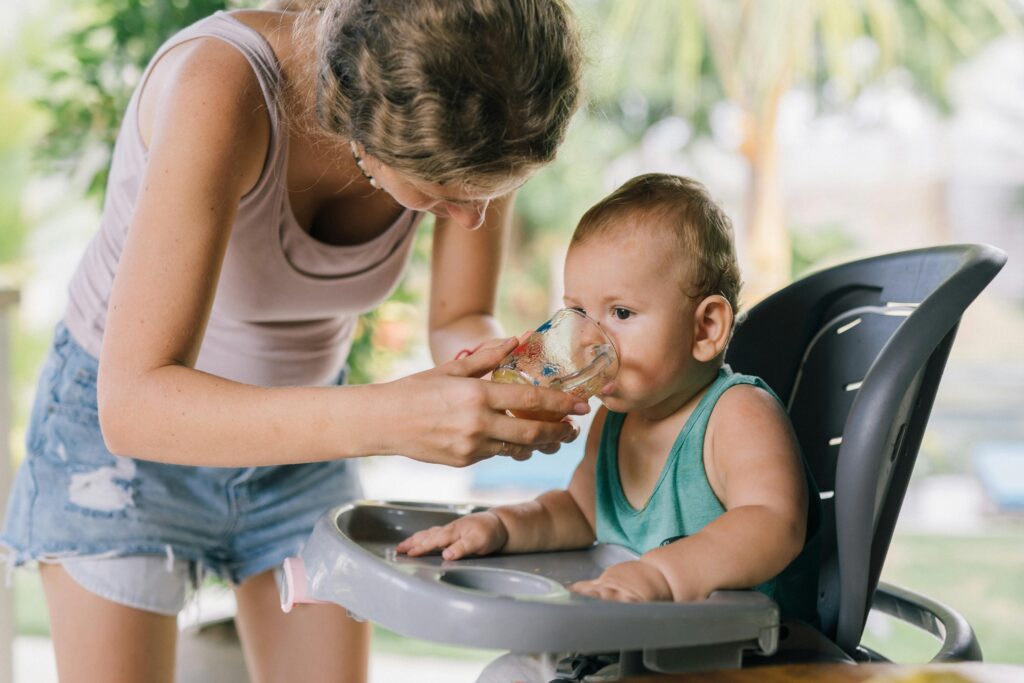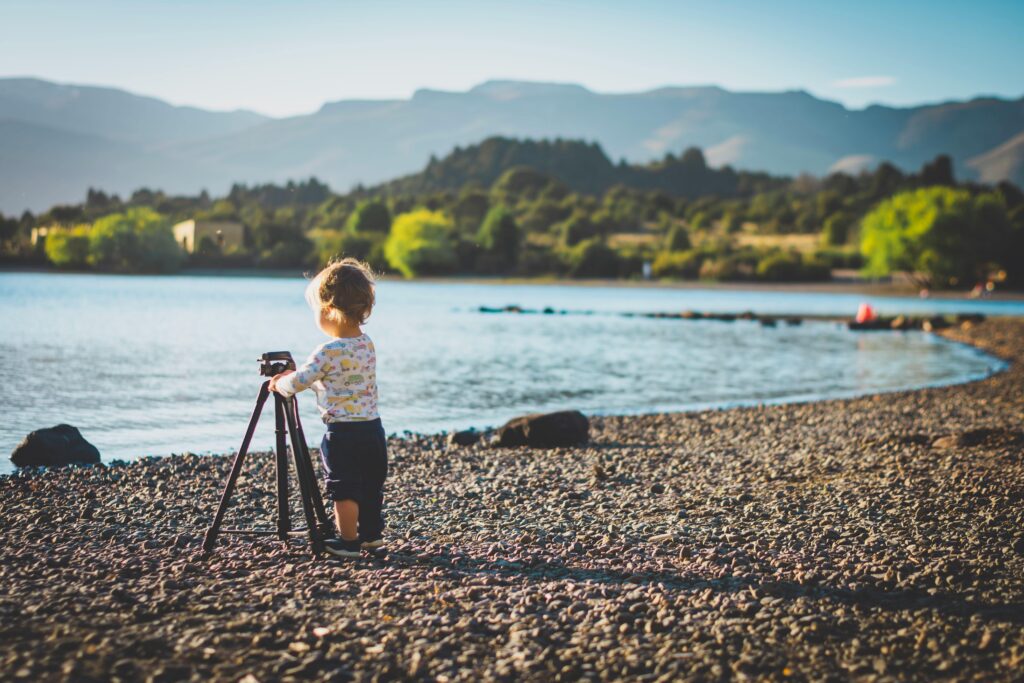Is Your Little One Thirsty? Spotting & Preventing Dehydration in Indian Kids
As Indian parents, we know how quickly our little ones can get unwell, especially with our changing weather or common childhood bugs. One of the biggest worries during sickness, or even just hot days, is dehydration in kids. It sounds simple, but when a child loses more fluids than they take in, it can become serious very quickly. At Babyblissful.in, we understand your concern, and we’re here to guide you through recognizing the signs of dehydration in babies and toddlers and how to keep them well-hydrated and happy.
Understanding Dehydration: Why Kids Are Vulnerable
Dehydration happens when the body doesn’t have enough fluids to work properly. Children, especially infants and toddlers, are much more prone to dehydration than adults. Why? Because their bodies have a higher water content and a faster metabolism, meaning they lose fluids more rapidly through sweating, breathing, and especially when they have fever, vomiting, or diarrhea. In our Indian climate, even playing actively on a hot day can lead to fluid loss.

Spotting the Signs: How to Tell if Your Child is Dehydrated
Recognizing dehydration early is key. The signs can range from mild to severe, so it’s important to pay close attention.
Mild Dehydration (Early Signs – Don’t Ignore!):
- Increased Thirst: Your child might ask for water more often or seem unusually eager to drink.
- Dry Mouth and Lips: Their lips might look a bit chapped, and their mouth might feel sticky.
- Slightly Decreased Urination: Fewer wet diapers for infants (e.g., less than 6 in 24 hours) or fewer trips to the bathroom for toddlers.
- Less Active than Usual: They might seem a bit tired or less playful than their usual energetic self.
- Cool Hands and Feet: Their extremities might feel a little cooler to the touch.
Moderate Dehydration (More Noticeable Signs – Act Quickly!):
- Very Dry Mouth and Tongue: Their tongue might look coated or very dry.
- Sunken Eyes: Their eyes might appear a bit hollow or sunken.
- No Tears When Crying: This is a significant sign in infants and young children.
- Significantly Decreased Urination: Very few wet diapers or no urination for 6-8 hours in toddlers.
- Lethargy or Irritability: They might be unusually sleepy, listless, or very fussy and difficult to comfort.
- Sunken Soft Spot (Fontanelle) in Infants: The soft spot on a baby’s head might appear noticeably sunken.
- Reduced Skin Elasticity (Skin Turgor): If you gently pinch a fold of skin on their tummy or arm, it will be slow to return to normal (it will “tent” for a few seconds).
Severe Dehydration (Emergency – Seek Immediate Medical Help!):
- Extreme Thirst: They might be desperately thirsty.
- Very Dry Mucous Membranes: Mouth, tongue, and inside of nose are extremely dry.
- Rapid, Weak Pulse: Their heartbeat might feel very fast and weak.
- Rapid, Deep Breathing: They might be breathing unusually fast and heavily.
- Cold, Clammy, or Mottled Skin: Their skin might look pale, blotchy, and feel cold.
- No Urination: No wet diapers or urination for 12 hours or more.
- Extreme Lethargy or Unresponsiveness: They might be very difficult to wake up or seem unresponsive.
- Severely Sunken Eyes and Soft Spot: These signs become very pronounced.
How to Check for Dehydration at Home:
How to Check for Dehydration at Home:
- Wet Diaper Count (for infants): Keep a close watch on how many wet diapers your baby has in 24 hours. A significant drop is a red flag.
- Urine Output (for toddlers): Ask your toddler if they need to pee, or check their underwear.
- Oral Check: Gently feel their mouth and tongue. Are they moist or dry/sticky?
- Tears: Observe if they produce tears when crying.
- Energy Levels: Is their usual playful energy gone?
- Skin Pinch Test: Gently pinch a small fold of skin on their tummy. If it stays “tented” for a couple of seconds, it’s a sign of dehydration.
Preventing Dehydration: Keeping Your Little One Hydrated
Prevention is always better than cure, especially when it comes to toddler hydration.

- Offer Fluids Regularly:
- Breast Milk/Formula: For infants, continue frequent breastfeeding or formula feeding. Breast milk is the best fluid for babies.
- Water: For babies over 6 months and toddlers, offer plain water frequently throughout the day, especially during hot weather or active play. Use a sippy cup for toddlers to encourage independent drinking.
- Recommended: Spill-Proof Sippy Cup for Toddlers (Encourages independent drinking and minimizes mess).
- Oral Rehydration Solutions (ORS): These are vital during illness (vomiting, diarrhea). They contain the right balance of water, salts, and sugars to replace lost fluids quickly. Keep ORS sachets at home.
- Recommended: Electrolyte Powder Sachets for Kids (Essential for quick rehydration during illness).
- Clear Broths: For toddlers, clear vegetable or chicken broths can be soothing and provide some electrolytes.
- Avoid Sugary Drinks: Juices, sodas, and sports drinks are not ideal for rehydration as their high sugar content can worsen diarrhea.
- Small Sips, Often (During Sickness): If your child is vomiting, don’t offer large amounts of fluid at once. Offer 1-2 tablespoons every 15-20 minutes. Gradually increase the amount as they tolerate it.
- Encourage Eating (When Tolerated): Once vomiting subsides, offer bland, easy-to-digest foods that contain water, like rice, khichdi, bananas, or boiled potatoes.
- Dress Appropriately: Dress your child in light, breathable clothing, especially in warm weather, to prevent overheating and excessive sweating.
When to Call the Doctor: Don’t Hesitate!
Always trust your parental instincts. If you are concerned, it’s always best to consult your pediatrician. Seek immediate medical help if your child shows any signs of severe dehydration or if:
- They are refusing to drink any fluids.
- Vomiting is very forceful or persistent.
- Vomit contains blood, dark particles, or is bright green.
- They have severe diarrhea.
- They are unusually sleepy, unresponsive, or difficult to wake up.
- They have a high fever that doesn’t respond to medication.
- You notice any of the severe dehydration signs mentioned above.
- Your baby is under 3 months old and has any signs of dehydration or illness.
Keeping your child well-hydrated is a fundamental part of their health, especially for Indian parents managing daily life and occasional sickness. By knowing the signs and taking prompt action, you can ensure your little one stays healthy, happy, and full of bliss!
Disclaimer:
Babyblissful.in shares general parenting insights and product recommendations. Some links on our site may lead to products or services from which we may earn a small commission if you make a purchase, at no extra cost to you. Product prices and availability are subject to change on the retailer’s website. Always consult a healthcare professional for medical advice.